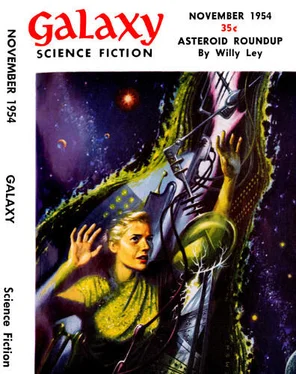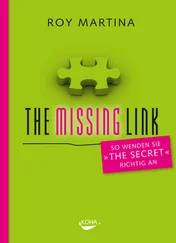Roy Hutchins - The Nostalgia Gene
Здесь есть возможность читать онлайн «Roy Hutchins - The Nostalgia Gene» весь текст электронной книги совершенно бесплатно (целиком полную версию без сокращений). В некоторых случаях можно слушать аудио, скачать через торрент в формате fb2 и присутствует краткое содержание. Год выпуска: 1954, Жанр: Фантастика и фэнтези, на английском языке. Описание произведения, (предисловие) а так же отзывы посетителей доступны на портале библиотеки ЛибКат.
- Название:The Nostalgia Gene
- Автор:
- Жанр:
- Год:1954
- ISBN:нет данных
- Рейтинг книги:3 / 5. Голосов: 1
-
Избранное:Добавить в избранное
- Отзывы:
-
Ваша оценка:
- 60
- 1
- 2
- 3
- 4
- 5
The Nostalgia Gene: краткое содержание, описание и аннотация
Предлагаем к чтению аннотацию, описание, краткое содержание или предисловие (зависит от того, что написал сам автор книги «The Nostalgia Gene»). Если вы не нашли необходимую информацию о книге — напишите в комментариях, мы постараемся отыскать её.
there is only one person to blame—Edgar’s grandmother!
The Nostalgia Gene — читать онлайн бесплатно полную книгу (весь текст) целиком
Ниже представлен текст книги, разбитый по страницам. Система сохранения места последней прочитанной страницы, позволяет с удобством читать онлайн бесплатно книгу «The Nostalgia Gene», без необходимости каждый раз заново искать на чём Вы остановились. Поставьте закладку, и сможете в любой момент перейти на страницу, на которой закончили чтение.
Интервал:
Закладка:
Folks who knew Edgar Evans said he was a strange young man. Certainly he was the darling of the old ladies and the despair of the young. The sternest fathers positively beamed when Edgar called for their daughters, but fellows his own age declared in the authoritative tones of youth that Edgar was a square.
Handsome enough he was. The real reason for all the fuss was Edgar’s manners. The trouble was that he had them.
For Edgar had been orphaned at four by an Oklahoma tornado and raised by his Hoosier grandmother, a dear old lady whose hand had once been kissed by a passing Barrymore. The result was Edgar’s manners. He realized, of course, that one didn’t kiss a lady’s hand these days, but such was Edgar’s gracious way that women always got the impression he was about to.
One parent, in something of a trance after encountering Edgar, summed up the reaction.
"That kid," he told his wife dazedly, "akshully called me sir. Them other punks come aroun' afta Milly, they call me Mac. Too bad that there Edgar was born fifty years too late."
Before very long, Edgar came to the same conclusion.
He knew a good many young men, but none he could call friend. The bop talk which fascinated them seemed to him a repulsive travesty upon English, just as their favorite music sounded like the braying of asses in agony.
Many girls were willing enough when Edgar asked for a first date, but an amazing number of them developed ill health when he suggested a second evening of classical records or good conversation.
The girls themselves could not be blamed if they mistook his courtly approach for a new dreamy line. Alas, the very hearts which fluttered at his old-world chivalry grew icy when no pass was made. A girl wants to know her charms are appreciated.
So Edgar sank more deeply into himself. He recalled his grandmother’s stories about life and living back near the end of the century, when folks knew how to be pleasant and kind.
Even at his job—he was a technician in an electronic lab—Edgar couldn’t stop longing for that era when existence had been more gentle, simple and leisurely. His social life virtually ceased.
"Man, you ain’t livin'," said one of the technicians he worked with. "We’re gonna buzz a few dives tonight. Why not drag it along with us?"
Edgar blanched. "Thank you just the same, but I—I have some work to do."
After a while, naturally, they stopped asking.
He continued to dream hopelessly, miserably, but one day he was yanked out of it by—of all people—a military man. The brass were on inspection tour and the lab’s Chief Engineer was apologizing for a faulty run of synchros which had occurred some time ago, when the Brigadier snorted.
"What’s past is finished. I’m interested in five years from now!"
Edgar found himself staring fixedly at a top secret gadget still in the breadboard stage.
"Great heaven!" he thought. "I have a fixation. This isn’t doing me any good."
But what would? Suppose, instead of dreaming, he spent time actually working toward what he wanted most?
Here in the lab, he helped to build amazing machines, things which daily did the impossible. He no longer marveled at what could be done with electronics and, more important, he knew the methods and the details.
That was when Edgar decided to build a time machine.
It was two months before he touched a transformer or a capacitor and during that period he did nothing but try to answer the question, What is time? How could he overcome it or change its flow or whatever had to be done?
He read everything he could find on the subject from Dr. Cagliostro to Dr. Einstein without gaining much insight. Many a midnight, when his neck muscles ached from trying to hold up his throbbing head, he caught himself dreaming of grandmother’s wonderful stories. And every time he forced himself furiously back to the books, but he couldn’t stop the nostalgia entirely. It was in him.
Eventually, Edgar came to think of time as an infinite series through which the Universe was constantly expanding. Something like a set of stop-motion photos taken microseconds apart, each complete, the changes becoming apparent only when they are viewed in sequence. He was wrong, of course, but that was unimportant.
Time must therefore be a function of human motion and consciousness, Edgar reasoned, and that was important.
"That’s it!" he exclaimed, and then apologized gracefully to the elderly gentleman glaring across the library table.
Now that he knew what his time machine must do, he could begin building, adapting circuits, experimenting. Obviously, consciousness could move forward through the series only; hence, consciousness must be completely suspended, as in death, to move back in time.
It required some heartbreaking months for Edgar to learn that brain waves couldn’t be stopped, but that the simple trick of introducing random electrical noise suspended all the brain functions.
"Fudge!" cursed Edgar, thinking of the wasted time.
Only a man filled with the longing which obsessed Edgar could have found the aching perseverance and brain-wrenching ingenuity the job needed. Only a man driven by a terrible master that rode in his glands.
But four months later, he stood with his hand on a switch, sweating with nervous excitement as he eyed the spot from which a live rabbit had just disappeared. The rabbit was on the table, but he was there an hour ago and Edgar was here now, so the table appeared empty.
He pressed another switch and there was the bunny, wriggling its soft nose in perplexity, but perfectly healthy. Edgar’s own trip, of course, would be strictly one way since the machine stayed in the present. He could be brought back only if he stepped into its field on a date for which the machine was set and he had absolutely no intention of venturing near this vicinity again, once his aim was accomplished.
He thought about arranging a small explosive charge to blow the equipment to what he thought of as The Hot Place. It seemed to him, however, that there was some kind of law against that sort of thing. Besides, even if the machine should come to the attention of the authorities, who would know what it was? He could devise a mechanical scrambler to change all the control settings once he was gone, and it was unlikely that anyone could operate it again.
Most likely the landlady would simply sell it for junk, especially if he left owing her a week’s rent. The idea hurt his conscience.
"I know!" he exclaimed to himself. "I’ll buy a bank check and arrange to have the bank mail it to her a month after I’ve left!"
He felt much better about that.
Three weeks later, Edgar Evans was the newest boarder at Mrs. Peterson’s, on Elm Avenue in Greencastle, Indiana. He had arrived on April 3, 1893, the day after Easter, and already he was being referred to as "that nice young man staying at Emma’s."
Edgar snuggled into the life of the '90s like a showgirl into mink. He went to work as a clerk in Cloud’s Emporium and was soon regarded as logical choice for the next manager. Anxious mamas filled his evenings with dinner invitations and "at homes" and he had a dazzling choice of partners for the numerous socials.
Edgar waltzed his partners with zest and propriety, contributed a determined tenor at parlor sings, and sampled dozens of cakes and pies baked by maidens bent on winning his heart via the traditional route. And always he had a gracious compliment, an appropriate phrase for every situation.
Within a month, the entire feminine population of Greencastle was his for the asking, though he’d never have recognized nor admitted the fact. The men sought his company, too, and even asked his advice on how to win their girls back from him. Edgar, almost sick with happiness, told them, of course.
Читать дальшеИнтервал:
Закладка:
Похожие книги на «The Nostalgia Gene»
Представляем Вашему вниманию похожие книги на «The Nostalgia Gene» списком для выбора. Мы отобрали схожую по названию и смыслу литературу в надежде предоставить читателям больше вариантов отыскать новые, интересные, ещё непрочитанные произведения.
Обсуждение, отзывы о книге «The Nostalgia Gene» и просто собственные мнения читателей. Оставьте ваши комментарии, напишите, что Вы думаете о произведении, его смысле или главных героях. Укажите что конкретно понравилось, а что нет, и почему Вы так считаете.











